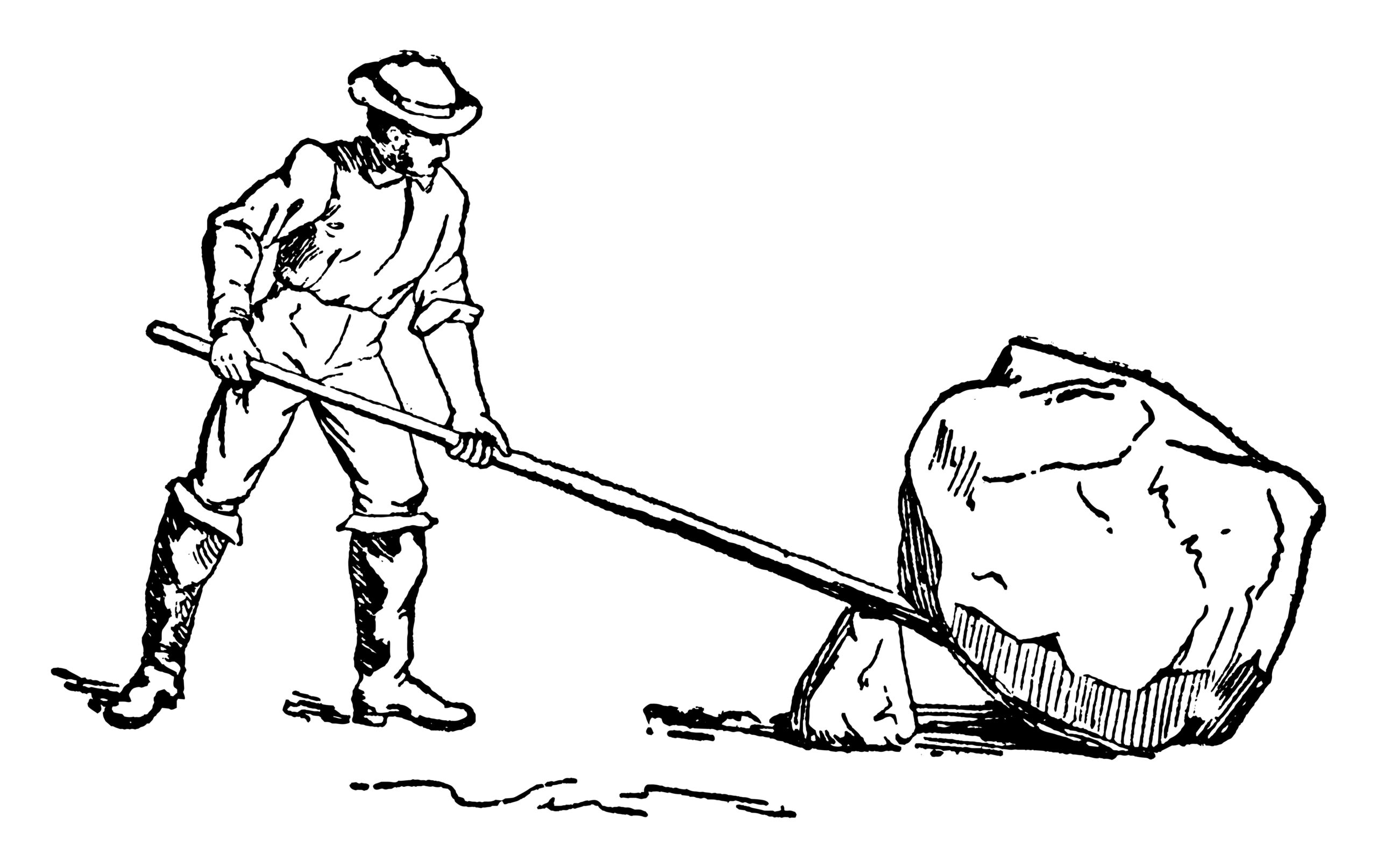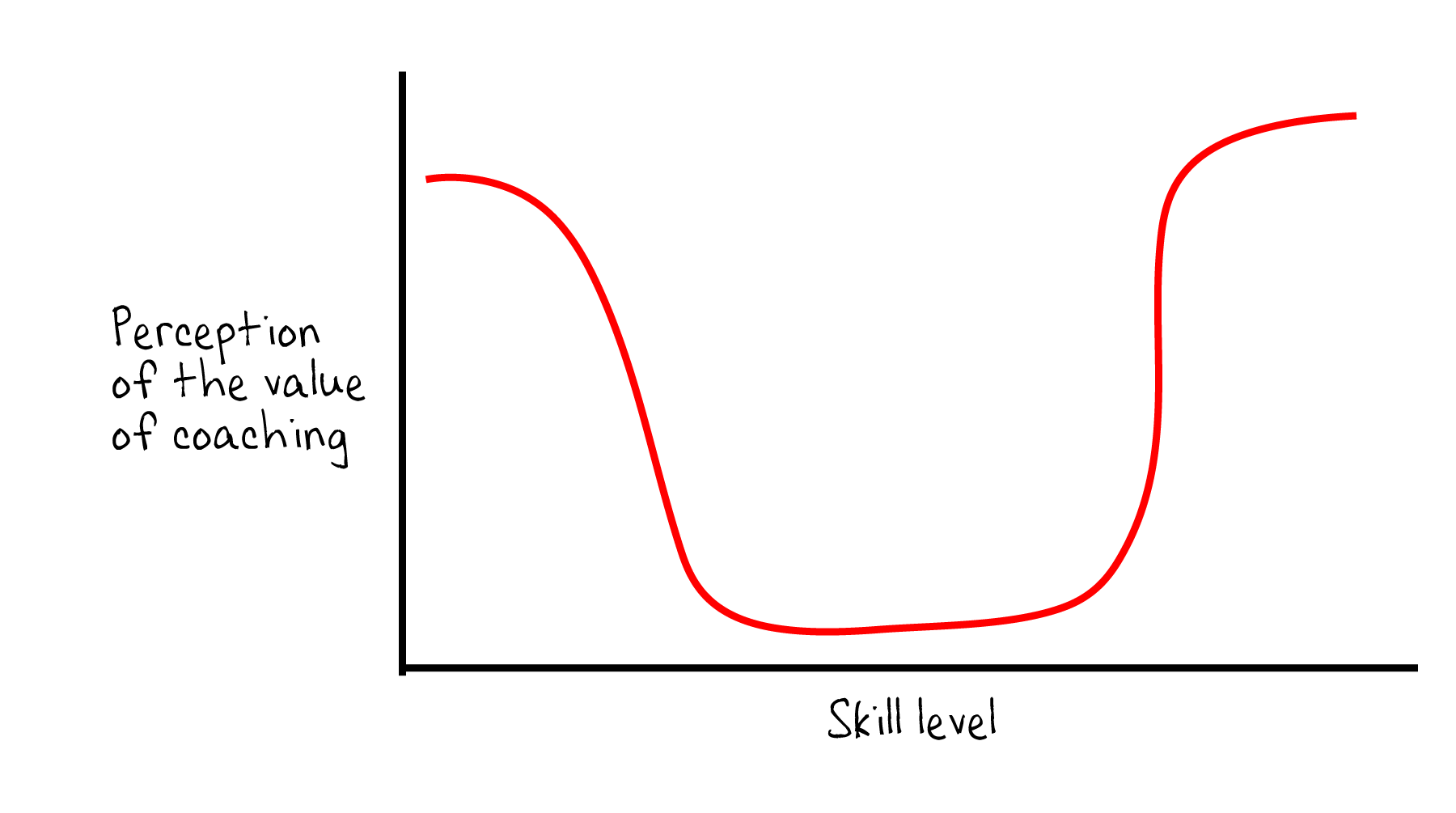A central fact about coaching is that the coach doesn’t execute. A golf coach never hits the shot for the golfer. A business coach never executes the clients strategy.
So, what’s the value of hiring a coach? And, therefore, when and how should you allocate limited time and money for coaching?
Coaching is leverage. If I can accomplish X results, a good coach turns that into, say, 2X. If I can develop a skill in a year, a good coach shrinks that to, say, a quarter.

It’s kind of funny. If you were to graph who sees the value in this, who tends to use coaches, it’s a U curve. Beginners see the need for a coach to get started well. People at the top of their game see the need for a coach to stay at the top. People in the middle often think they’ve outgrown coaching.

So, if coaching is leverage, when and how do you use it?
The flip side
Let’s start by flipping the question. When is leverage not useful?
First, don’t bother applying leverage to skills or capabilities where leveling up wouldn’t produce more of an outcome that matters. For example, I probably don’t need to hire a bookkeeping coach. I could be better at bookkeeping, certainly, but even getting 100 times better at bookkeeping isn’t likely to have a material positive impact on my business or my life. My skill has plenty of room for improvement, but improvement won’t produce more of an outcome that matters for me.
Second, don’t apply leverage where you don’t have much room to improve. If you’re already good enough at something to get the results you want, you may see limited benefit from getting better. For example, one leader we work with is very good at organizing and running meetings. They always have a clear purpose, and participants find the meeting typically flows smoothly towards that purpose, even where there’s conflict or disagreement along the way. Could she get better at facilitation? Probably. But she’s already good enough. That’s not a place to apply leverage.
By the way, there are those rare situations where eking out the last 1% of improvement is worth it, where it’s a key differentiator (iPhone UX in the early days) or where you’re just playing that kind of game (Olympic sports). But that’s not where most of us are playing most of the time.
So, reversing those two criteria tells us: Apply leverage to skills or capabilities where you have room to improve and where improving will correlate to getting more of an outcome that matters.
Leverage to produce outsized results
The most common situation where coaching acts as leverage to produce outsized results is when one person leveling up their skills will make several other people more effective. Two common examples where this happens with our clients:
Astute leaders realize the capabilities that got them to their current level aren’t sufficient in the high-stakes situations they’re facing now. For example, consider the leader who has advanced by being hard-driving, putting in extra efforts, and just getting stuff done. But now, they’re leading a group where results are only going to happen if everyone is aligned around a shared purpose and bringing all their capabilities to the table. The leader just pushing harder isn’t gonna do it. This leader needs leverage. Namely, a coach helping them level up on casting vision, building high-performing teams, and creating sustainable systems of productivity. This kind of leadership multiples the efforts of everyone involved.
In a similar vein, every time we coach a product owner or product manager to improve at customer research, vision, or backlog refinement, a whole team immediately gets more effective. The ROI on this is staggering. A typical software team in the US has a loaded cost on the order of $1-2m per year (and, you hope, a return larger than that cost). A relatively small investment in skill development for a product leader can help that whole team create tens or even hundreds of thousands of dollars of additional value each year. That’s high leverage coaching!
Your turn
Consider your own work:
- Which capabilities in your work are most correlated to the outcomes you need to create?
- Where are you hitting the limits of your capability now?
- Which things, if you improve them, will make other people more effective?
- What steps will you take to level up this year?
Want to develop your leadership, product management, or collaboration capability in 2024? Visit humanizingwork.com/contact and set up a time to chat about how we can support you towards that goal.
Last updated